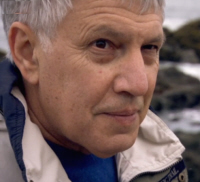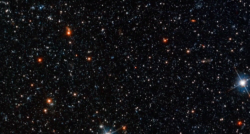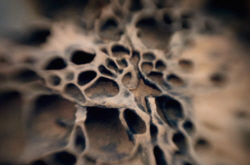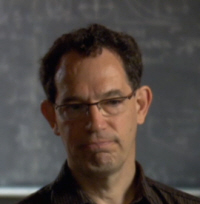Flawed Concept?
Why the big bang theory is wrong
Horizon – Before the Big Bang

Professor Michio Kaku
Professor Kaku’s version of nothing is a perfect vacuum where, on the face of it, there is only energy. But in a perfect vacuum, energy sometimes
transforms itself, temporarily and briefly, into matter. It is one of these tiny explosions that might have kept going and ended up in the big bang.
Michio Kaku “So for me, the universe did not come from ‘absolute nothing’, that is a state of no equations, no space , no time, it came from a
pre-existing state, also a state of nothing. That our universe did actually come from this infinitesimal tiny explosion that took place, giving us
the big bang and giving us the galaxies and stars we have today.”
For Professor Michio Kaku, the laws of physics did not arrive with the big bang. The appearance of matter did not start the clock of time. His
interpretation of “nothing” tells him that there was, in short, a “before”. If he’s right, there is an opportunity for a cause to have an effect
after all.
At Stanford University near San Francisco, Professor Andrei Linde believes that the big bang itself is a flawed concept, but one that holds tantalising
clues to the “real” story of creation.
Andrei Linde “The idea of the big bang was a very powerful idea, but this idea had its own problems. One of the problems – why the universe was as big
as it is now? The second idea – who made it expand? What caused this explosion?”.

Professor Andrei Linde

Tidy Universe
Big bang was clearly a very special explosion. Ordinary explosions are messy. This one produced a universe that wasn’t messy at all.
Our universe is “smooth” – it looks more or less the same in every direction.
It was an observation that required a radical explanation. Professor Linde was one of the cosmologists who provided it. The idea was that,
just after matter first appeared, rather than a messy explosion, there was instead a massive and unprecedented growth in the size of the
universe. The process is called inflation.
Andrei Linde “If one assumes that there was this period of exponential expansion of the universe, in some energetic, vacuum-like state, then
you can explain why the universe is so large, why the universe is so smooth at the very large scale, why properties of the universe in different
parts are so similar to each other. All of these questions can be addressed if one uses inflation.”
The big bang and inflation explained everything. The universe began with a matter-producing explosion. Then, inflation sped things up and
smoothed things out for a while, before disappearing, to leave the gently-expanding universe we see today.

Inflation
Inflation was so successful that Linde began to wonder if the big bang was needed at all.
Andrei Linde “Maybe it’s easier to say that there was inflation from the very beginning. It was not difficult from the point of view of
mathematics, it was a difficult psychological step to give it up.”
Linde’s masterstroke was to cut the big bang out of the story altogether, and to envisage inflation and something from which our universe
emerged. A pre-existing condition that has been there… well, forever.
Andrei Linde “You have Swiss cheese, OK? And in this Swiss cheese, we have these bubbles of air. So just imagine that the cheesy part of it
is heavy vacuum and the universe expands and these bubbles appear inside. And it looks like infinite universe inside.”
So for Linde, the big bang isn’t really a starting point at all. He thinks that it’s simply the end of something else. The universe appeared out
of the cheese of what he calls “eternal inflation”, in an area where the inflation simply ran out of steam.
This has huge implications. It means that when we look into the night sky, we see only a tiny piece of the story of existence. Our universe is not
alone. There are others, all co-existing within the terminally-inflating super-universe of Linde’s cheese. And he’s counted them.

Cellular Structure
Andrei Linde “We have calculated how many really different options you can see on the way of your travel.”
Reporter “And what did that give you?”
Andrei Linde “And that gave us the number 10 to the degree 10 to the degree 10 to the degree 7. This is a huge… absolutely enormous
number. But that’s what they got as a result of our calculations.”
Andrei Linda is a hugely-respected scientist. His ideas of the multiverse, odd as they seem, are now within the scientific
mainstream. For many cosmologists, eternal inflation is in itself a reasonable explanation of what existed before our universe.
But others, it’s utter nonsense.

Professor Neil Turok
Neil Turok “It’s too arbitrary. You can start it one way, you can start it another way, you can tweak the parameters to get whatever
observations you want. This is very dissatisfying. I basically feel we are letting down our tradition of theoretical physics, which is
the most precise, predictive, powerful area of science we know, and we’ve got to do better than this.”
Professor Turok runs the Perimeter Institute for fundamental physics research near Toronto in Canada.
It is full of men and women trying hard to follow their leader’s urgings to “do better”. Here, thinking about what happened before the big bang
is all part of a day’s work. And though most people think there was something before the big bang… no-one can quite agree on what, or even if
there was a bang at all.





